Employee departures are an inevitable part of any organization's lifecycle. While they may be bittersweet, they present valuable opportunities for growth and improvement. Conducting exit interviews is a crucial step in understanding the reasons behind an employee's decision to leave and learning from their departure. By extracting valuable insights through these interviews, HR professionals can identify areas of improvement, address underlying issues, and create a more engaging work environment. In this article, we’ll explore essential tips for conducting successful exit interviews and maximizing the benefits they offer.
1. Create a Safe and Confidential Environment: One of the most critical aspects of a successful exit interview is creating an atmosphere where departing employees feel comfortable sharing their honest feedback. Assure them that their responses will be kept confidential, and there will be no negative repercussions for their feedback. A neutral third-party conducting the interview, such as an HR representative, can further enhance openness and trust.
2. Timing Matters: Schedule the exit interview as close to the employee's departure as possible, ideally within a week of their last day. This ensures that the reasons for leaving are still fresh in their mind and increases the likelihood of receiving candid responses. Delaying the interview may lead to forgotten details or a loss of motivation to provide feedback.
3. Prepare Thoughtful Questions: Craft a well-structured list of questions that delve into various aspects of the employee's experience within the organization. Focus on their reasons for leaving, their overall job satisfaction, opportunities for growth, and the work environment. Open-ended questions encourage detailed responses and provide a deeper understanding of their experiences.
Sample questions include:
- What factors contributed to your decision to leave the company?
- How would you describe your relationship with your supervisor and colleagues?
- Were there any aspects of your job that you found particularly fulfilling or challenging?
4. Listen Actively and Be Empathetic: During the exit interview, the HR representative should focus on active listening and empathetic communication. Let the employee speak without interruption and show genuine interest in their feedback. Acknowledge their feelings and experiences, even if you may not agree with them. Demonstrating empathy fosters a positive image of the organization and leaves the door open for potential future relationships.
5. Analyze Data and Identify Trends: Exit interviews should not be treated as isolated events but rather as valuable data points that can help identify patterns and trends. After conducting several interviews, HR professionals should analyze the data to discover recurring themes or common issues. This data-driven approach allows the organization to address systemic problems and make data-backed improvements to retain top talent in the future.
6. Share Findings with Management: The insights gained from exit interviews should be shared with relevant stakeholders, including management and department heads. Transparently communicating the findings allows leaders to better understand the areas that need improvement and work towards implementing necessary changes. This also demonstrates the organization's commitment to learning from departures and fostering a positive work environment.
7. Implement Actionable Changes: Simply conducting exit interviews is not enough; taking action based on the feedback received is crucial. Use the feedback to implement changes that address the identified issues and enhance the overall employee experience. Regularly assess the impact of these changes and fine-tune them if needed.
Exit interviews are more than just a formality; they offer invaluable opportunities for organizations to learn from departing employees and create a better workplace for the future. By creating a safe space for honest feedback, listening actively, and acting on the insights gained, HR professionals can turn employee departures into catalysts for positive change. Embracing a culture of continuous improvement and learning from every exit interview can lead to increased employee retention and a more engaged workforce.





